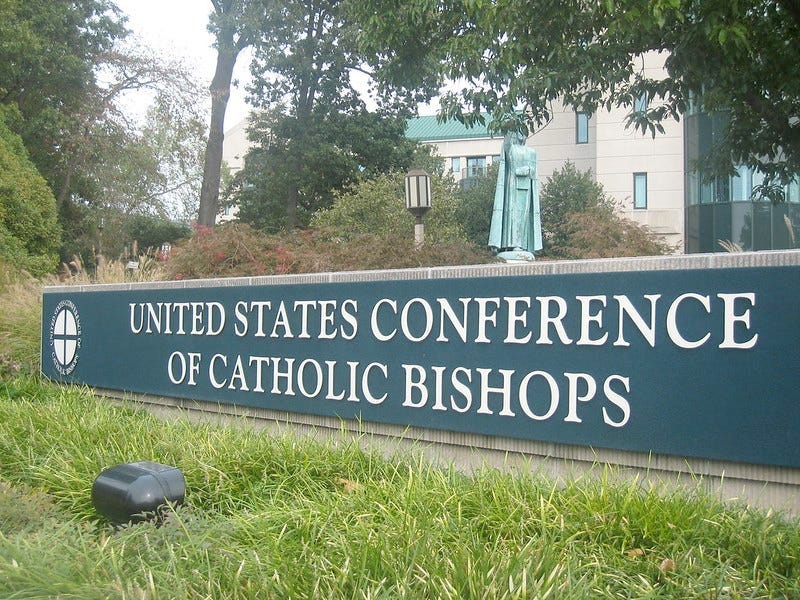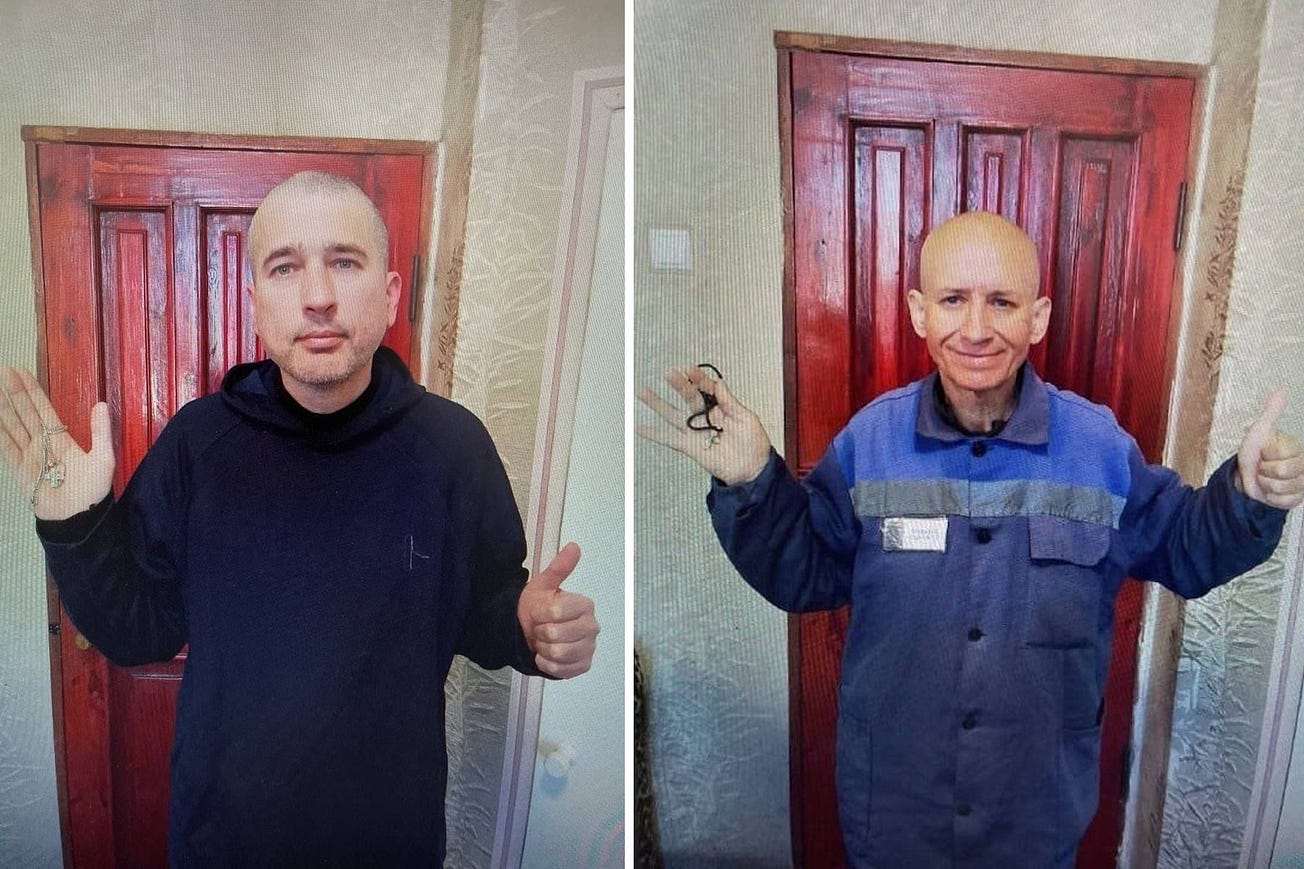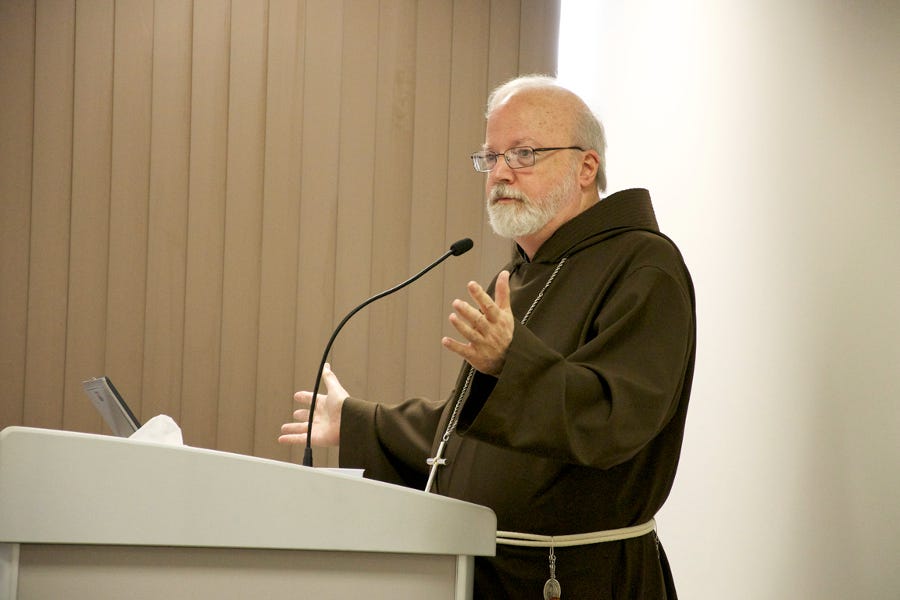The U.S. bishops’ conference executive leadership wrote to bishops Tuesday, clarifying the scope of a recent round of layoffs in USCCB’s department for Justice, Peace, and Human Development, as sources say the Catholic Campaign for Human Development committed funding beyond its financial reserves.
A June 25 letter explained that recent layoffs at the conference affected three out of six of the department’s personnel designated for CCHD and an additional four of the 17 other positions in the justice and peace secretariat.
The memo also stated that two other administrative staffers at the conference had been laid off, and that other vacant positions might go unfilled to make further savings, bringing the total number of immediately affected roles to nine, rather than the 12 suggested by initial media reports.
It also clarified that before the layoffs were made, conference executives consulted “with the CCHD subcommittee, other committee chairs, the Budget and Finance Committee, and the Executive Committee (which oversees personnel matters).”
“News of job loss is never easy to hear, nor to convey. I deeply regret the necessity of such actions,” conference general secretary Fr. Michael Fuller wrote in the memo.
Cutbacks to the justice and peace department have provoked considerable discussion and even criticism from some quarters, with speculation from some commentators that the moves are part of an “ideological purge” by the conference aimed at the department charged with issues like environmentalism and social justice.
Others, including some bishops, have questioned the level of consultation undertaken by USCCB leadership before the layoffs were announced.
But in his June 25 memo, Fuller explained that during the bishops’ spring assembly this month in Louisville, “I shared with you … we are restructuring and reducing staff in several departments that were partly funded by the CCHD collection.”
Fuller explained that “because of the nature of these changes, and the fact they deal with personnel, I was unable to share more specifics” during that meeting.
—
In the same memo, Fuller assured bishops that “the work of CCHD will continue.”
But “with a reduction in funding and resources, how that work is to be accomplished and the level at which it will continue, will be different,” the priest wrote, adding that bishops will be charged with “ongoing discernment” regarding the anti-poverty initiative — discernment which began with closed door discussions among the bishops this month.
The priest also added that the USCCB’s Secretariat of Justice, Peace, and Human Development will be renamed the Secretariat of Justice and Peace, apparently to reflect a restructuring of positions.
“Nevertheless, the Conference’s commitment to working and advocating for the poor will continue,” he wrote.
—
While the conference has repeatedly declined comment, sources close to the conference told The Pillar Friday that the layoffs are linked to an ongoing budget crisis at the Catholic Campaign for Human Development.
According to senior sources familiar with the situation, the campaign, which makes grant allocations to various projects and is funded by an annual second collection, has spent through its capital reserve since the last audit round in 2022.
In addition to allocating all its available capital, the CCHD also reportedly pledged additional grant funding beyond its reserves, creating a budgetary “blackhole” for which the USCCB is now liable, resulting in the cost-cutting measures.
Those measures, The Pillar was told, fell on the justice department, given that the JPHD offices account for a significant portion of conference staff and is the department charged with the oversight and administration of CCHD.
Sources familiar with the situation also told The Pillar that before 2022, the CCHD had amassed so much reserve funding that the conference directed it to begin spending down its capital, but that “free spending” had continued past what the reserves would allow.
The program is funded by an annual second collection, which takes place during Sunday Masses in parishes across the country. To encourage robust participation in the CCHD collection, participating dioceses keep 25% of revenue for local anti-poverty programs, while sending 75% to the USCCB for distribution.
But according to USCCB records, CCHD’s available cash has dwindled in recent years. In 2019, the program had nearly $36 million on hand, and took in $9.5 million from the annual second collection. The program gave out $12 million in grants, and ran almost a $3 million deficit for the year.
By the end of 2022, the most recent year in which data was available, CCHD had only $8.5 million on hand — a combination of annual spending in excess of revenue, and investment portfolio losses.
In 2022 alone, the program saw its net assets decline by more than $8 million — the organization gave out significantly more than it had taken in, while at the same time realizing investment losses.
While second collection revenue in 2022 was $8.1 million, CCHD collections flagged significantly during 2020 and 2021, when churches were closed amid the pandemic, with only $4 million collected in 2020, and only $6 million in 2021.
USCCB spokeswoman Chieko Noguchi told reporters last week that a “reorganization” of the department is meant to “allow the conference to align resources more closely with recent funding trends.”
The anti-poverty program has faced questions regarding its financial management and ongoing viability for months, with the issue being raised during a closed door session of the bishops’ plenary assembly in Louisville, KY, earlier this month.
While many bishops offered praise for the program and its work, some have made outspoken calls for “sunsetting” the CCHD entirely.
The former director of the CCHD, Ralph McCloud, resigned in April, amid reports of financial issues at the campaign.
editor’s note: This report is developing and has been updated.





